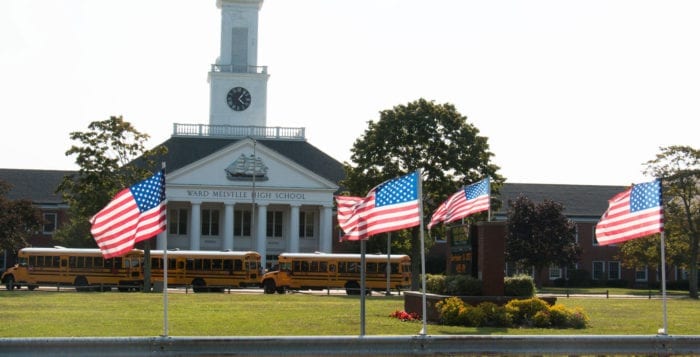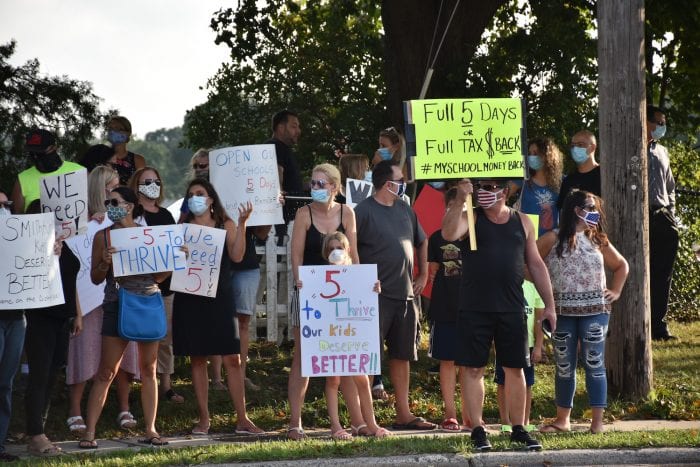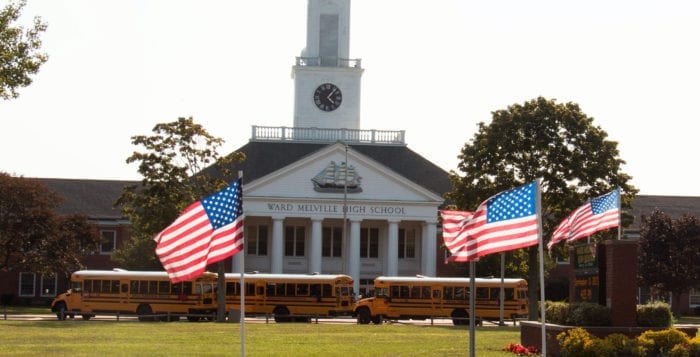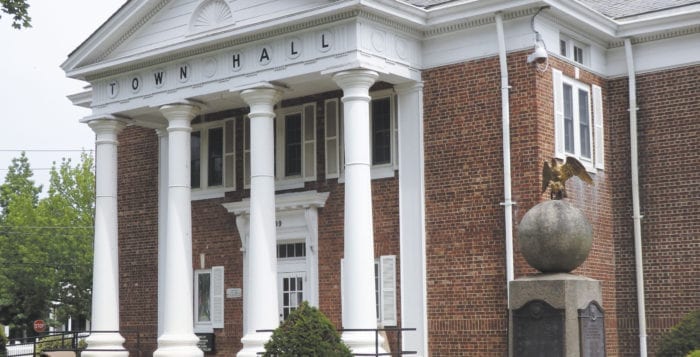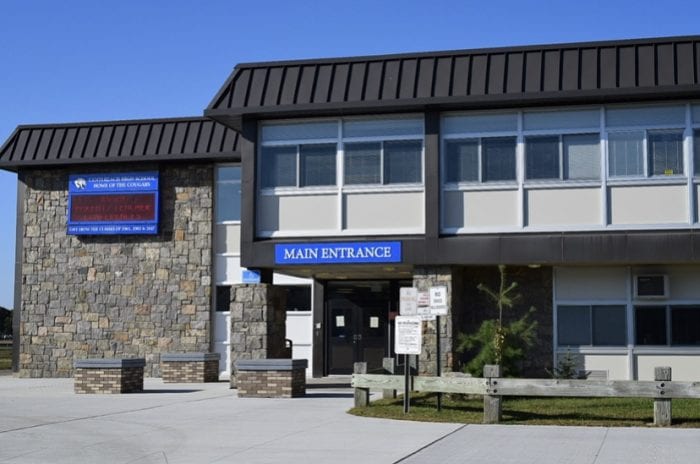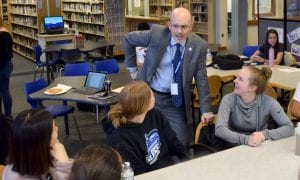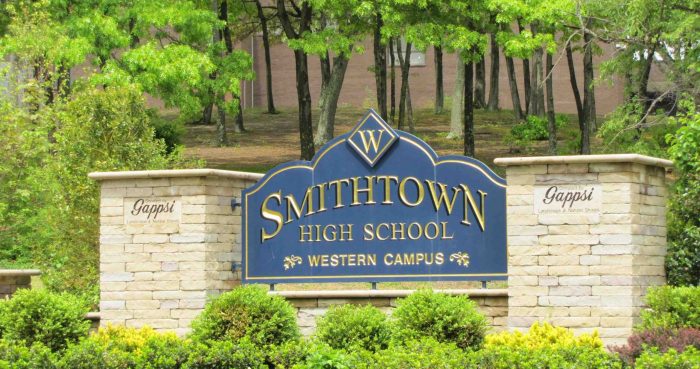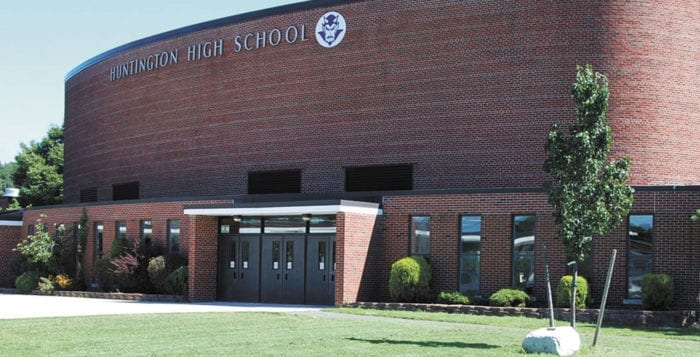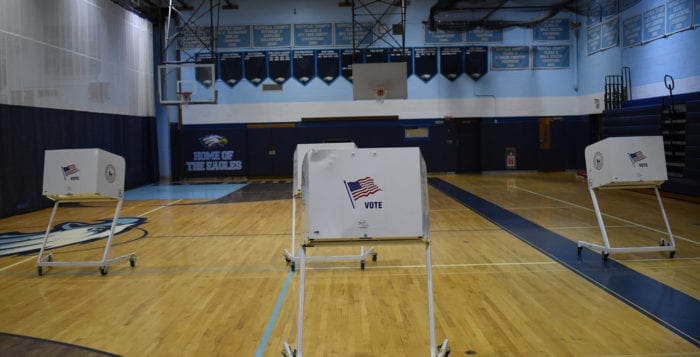By Andrea Paldy
Three Village Central School District residents will vote on the 2021-22 budget and select three school board trustees when they head to the polls next Tuesday, May 18.
Next year’s $222.6 million budget requires supermajority approval since it exceeds the 1.37% cap on the tax levy increase. Deputy superintendent, Jeff Carlson, has said that opening schools five days a week to all students cost the district about $6.5 million this year. Speaking at the most recent school board meeting May 5, he explained that with most of the money coming from reserves, the district has to pay itself back while also keeping current safety protocols in place for the upcoming school year.
At a previous meeting, Carlson said the 1.85% tax levy increase will generate close to an additional $800,000, roughly the amount the district will use to pay back its reserves. The average increase to taxpayers is $222 a year — about $58 more than they would pay per year under a 1.37% levy increase. State aid will increase by $1.8 million in the coming year, but because the current year’s aid package was less than the previous year, the net gain will only be about $200,000, Carlson said.
The district has budgeted for the restoration of health education for kindergarten through third grade, math labs at the high school and electives in the secondary schools. That will mean the addition of three full-time health teachers and an additional math teacher at $90,000 (including benefits) for a total of $360,000. In an email, Carlson said the cost will be covered through savings from retirements.
The district will also add a social worker for the elementary schools, an elementary chair to manage 504 programs, which provide support for students who need learning accommodations, and a music technology teacher. Carlson said each position is budgeted at $90,000 with benefits and will cost about $270,000.
If the proposed budget doesn’t pass, the district can either put the same budget up for a second vote, present a revised budget for vote or go straight to a contingency budget. A contingency budget would mean no increase to the tax levy and would require the district to cut $3 million, Carlson said. A failed second vote would also result in a contingency budget.
COVID safety protocols
During the public participation portion of this week’s board meeting, a group of parents spoke of being concerned about the “negative social, emotional and academic effects” of plexiglass barriers that have been erected as part of COVID-19 protocols on the desks of elementary students. They demanded that they be taken down “immediately.”
Members of the group said that since the Centers for Disease Control and Prevention no longer recommends the barriers and district secondary students weren’t using them, the district was “keeping the most severe district protocol in place for the least vulnerable students.” They called the protocol “unacceptable.” Some also declared the use of masks and barriers “redundant.”
Superintendent Cheryl Pedisich explained that elementary students eat at their desks, while secondary students do not.
“I hear the emotion, and it’s heartbreaking,” she said.
She also said the district had tried hard to “create as normal an opportunity” as possible for students, and that the district’s “layered approach” was part of its effort to keep students in school and keep everyone “safe and healthy.”
Pedisich said she also hears from parents “who feel very differently” and want the safety measures in place until the end of the year.
The superintendent acknowledged that “COVID fatigue is real,” but said that after speaking with the school governance committee and other superintendents, the prevailing sentiment is to “stay the course until the end of the year.”
“I don’t want to make imprudent decisions that in any way would jeopardize the health and safety of our students, and I think the board feels the same way,” Pedisich said.
The vote
The vote for the budget and school board trustees will take place Tuesday, May 18, from 6 a.m. to 9 p.m. at the district’s secondary schools, P.J. Gelinas and R.C. Murphy junior highs and Ward Melville High School. Candidates for three trustee positions are David McKinnon, Sue Rosenzweig, Shaorui Li, Karen Roughley and Deanna Bavlnka.
See tbrnewsmedia.com for last week’s article about the candidates.

